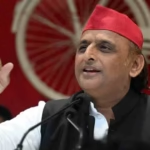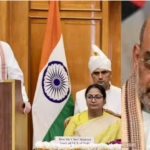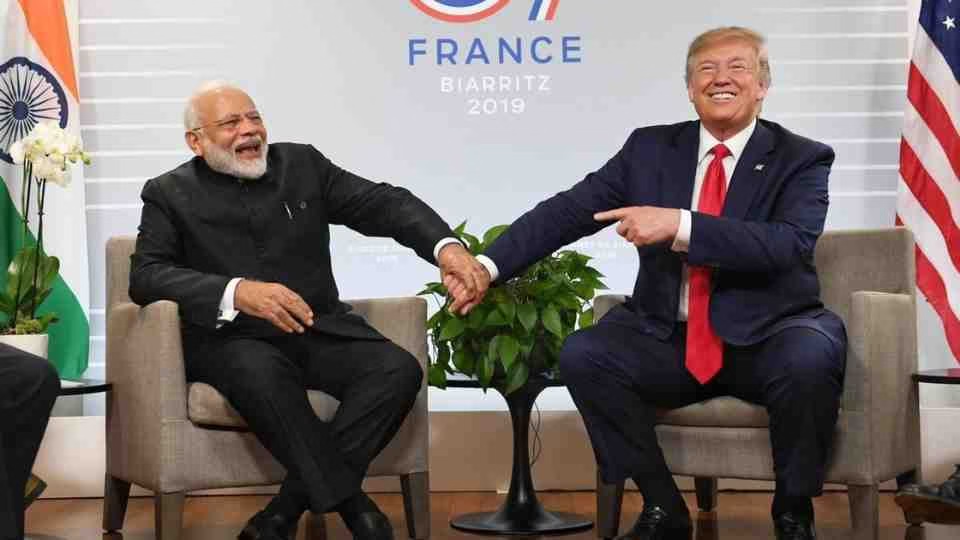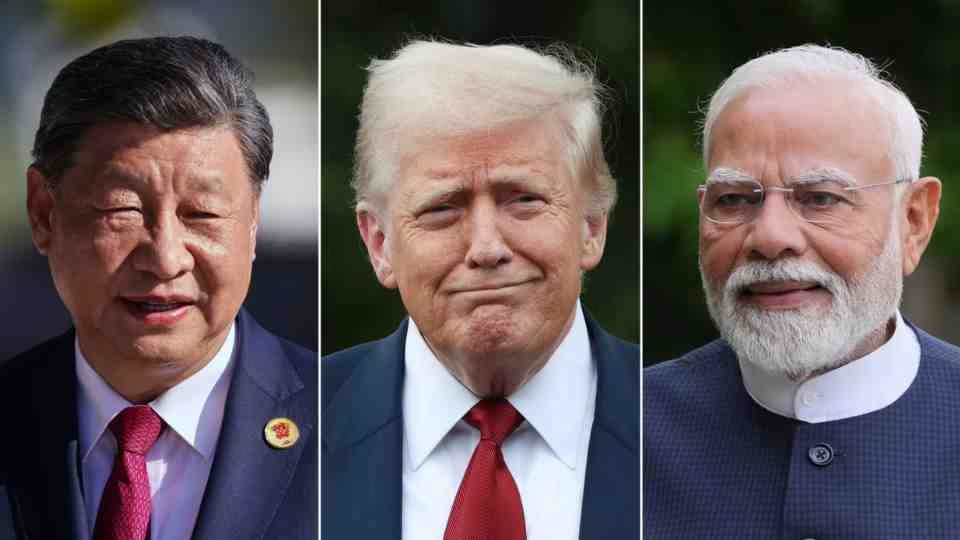How New Delhi’s energy pragmatism clashes with Washington’s geopolitical agenda
By Tab2 Mag Bureau | August 24, 2025
In the marble corridors of South Block, India’s foreign ministry headquarters, diplomats are crafting a message that reverberates from New Delhi to Washington: India will buy oil from whoever offers the best deal, regardless of American pressure.
The stark declaration came Sunday from India’s Ambassador to Moscow, Vinay Kumar, in an interview with Russian news agency TASS—a defiant response to Washington’s escalating trade war that has pushed tariffs on Indian goods to a crushing 50%.
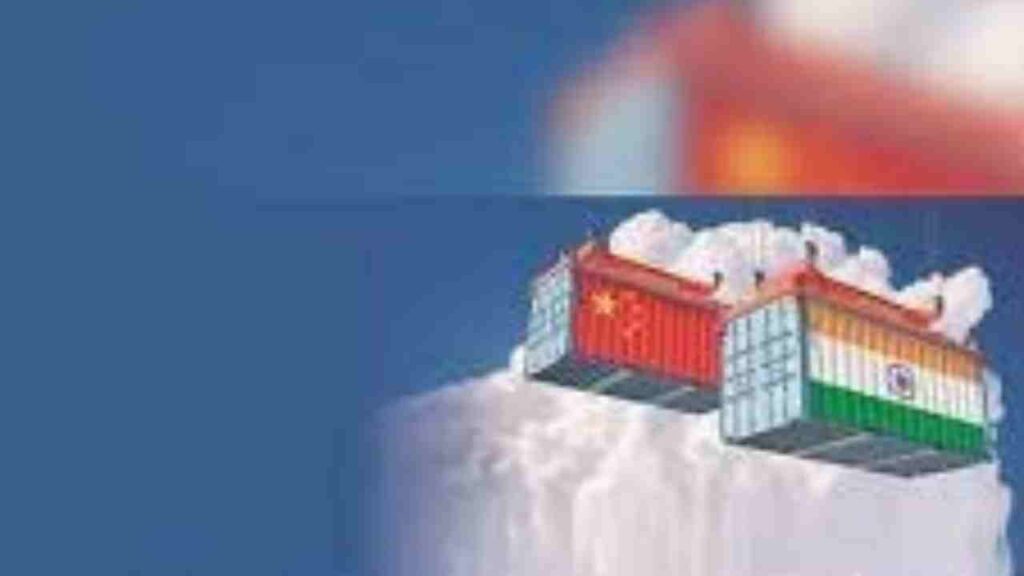
The Tariff Bomb
The latest salvo in this economic confrontation arrived via executive order in early August, when President Donald Trump doubled existing tariffs on Indian imports from 25% to 50%. The move, explicitly targeting India’s continued purchases of Russian crude oil, represents one of the most aggressive trade actions against a strategic partner in recent memory.
“This is unfair, unreasonable and unjustified,” Ambassador Kumar told TASS, his words carrying the weight of a billion-plus population that refuses to bend to external pressure. “We will continue to purchase oil from wherever we get the best deal.”
The numbers tell a story of economic pragmatism colliding with geopolitical positioning. Bilateral trade between India and Russia reached a record $68.7 billion for the year ended March 2025, with energy imports driving a massive $59 billion trade deficit in Moscow’s favor. Russian crude has become the lifeblood of India’s energy security strategy.
Energy Security vs. Strategic Partnership
For India, the math is simple: feed 1.4 billion people or appease Washington’s sanctions regime. The choice, Delhi argues, should be obvious.
“India has never been in the business of regime change or picking sides,” explains Dr. Harsh Pant, Vice President of Studies at the Observer Research Foundation. “Our energy needs are driven by developmental imperatives, not geopolitical calculations.”
This pragmatic approach has transformed India into Russia’s largest oil customer after China. Refineries across Gujarat and Maharashtra process millions of barrels of Urals crude, much of it eventually finding its way to international markets—including, ironically, the United States itself.
Reliance Industries, the conglomerate led by Asia’s richest man Mukesh Ambani, has been exporting refined products made from Russian crude to countries that have sanctioned Russia, creating a complex web of global supply chains that make sanctions enforcement nearly impossible.
The Consistency Question
Perhaps the most stinging aspect of India’s pushback lies in pointing out American inconsistencies. While the US imposed crushing tariffs on Indian goods over Russian oil purchases, bilateral US-Russia trade stood at $5.2 billion in 2024—down from $36 billion in 2021, but still significant.
“Where are the reciprocal tariffs on Russia?” Kumar pointedly asked, highlighting what New Delhi sees as a double standard that punishes partners while allowing continued engagement with the sanctioned nation itself.
This argument resonates strongly in Indian policy circles, where officials privately express frustration at being penalized for pursuing energy security while America’s own companies continue business relationships with Russian entities where legally permissible.
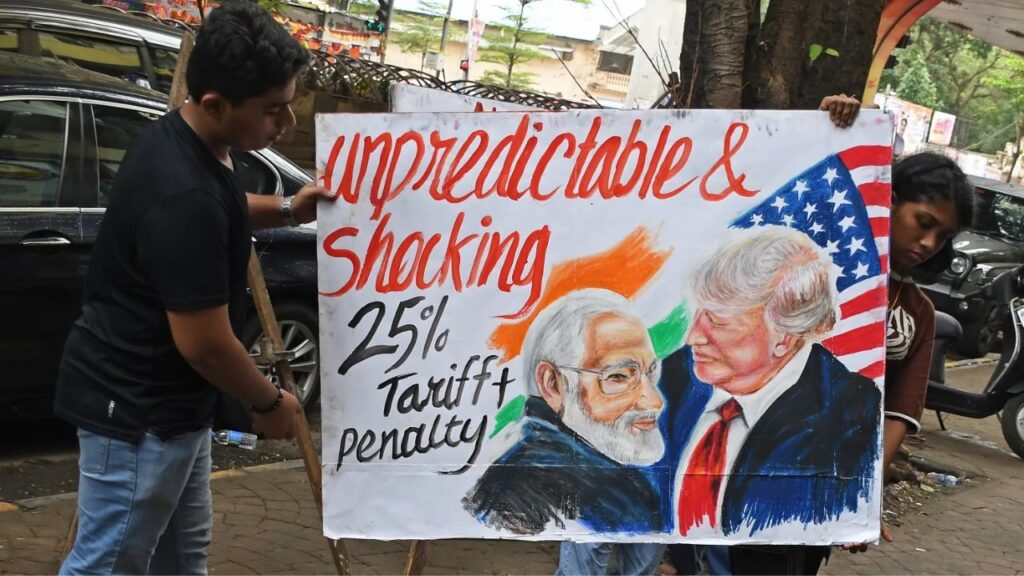
Modi’s Balancing Act
Prime Minister Narendra Modi finds himself walking a diplomatic tightrope. On one side lies India’s most important strategic partnership with the United States—a relationship built on defense cooperation, technology transfer, and shared democratic values. On the other stands energy security for the world’s most populous nation and fifth-largest economy.
The stakes couldn’t be higher. India’s energy imports account for nearly 85% of its oil needs, making affordable crude essential for everything from transportation to petrochemicals. Russian oil, available at steep discounts due to sanctions, has provided a crucial buffer against global price volatility.
“This isn’t just about oil,” notes energy analyst Karthik Ganesan from the Council on Energy, Environment and Water. “It’s about India’s right to pursue an independent foreign policy based on national interests rather than external pressure.”
Economic Warfare
The 50% tariff regime now imposed by Washington affects a broad swath of Indian exports—from pharmaceuticals and textiles to information technology services. The economic impact ripples through India’s export-dependent sectors, potentially affecting millions of jobs.
Yet Delhi shows no signs of backing down. Finance Ministry officials are reportedly drawing up retaliatory measures, while trade negotiators explore alternative markets for Indian goods. The European Union, Southeast Asian nations, and Middle Eastern countries have all signaled interest in deepening trade relationships as the US-India dispute escalates.
Global Implications
This standoff reflects broader shifts in the global order. India’s defiance signals to other nations that American economic pressure tactics may have limits, particularly when applied to large, democratic allies with alternative options.
China, watching closely from Beijing, sees validation of its own approach to sanctions resistance. Middle Eastern oil producers note India’s willingness to diversify suppliers based on price rather than political considerations. European allies observe how Washington’s pressure campaigns can strain partnerships.
The Path Forward
As August draws to a close, both sides appear entrenched in their positions. Washington shows no inclination to reverse the tariffs without concrete commitments from India to reduce Russian oil imports. New Delhi, meanwhile, treats energy sourcing as a matter of sovereign choice not subject to external diktat.
The resolution—if one emerges—may require face-saving compromises. Some analysts suggest India might gradually diversify its energy portfolio while maintaining its principle of buying from the best available source. Others propose American investment in Indian renewable energy infrastructure as an alternative to punitive tariffs.
“This is a test of whether economic interdependence can survive geopolitical disagreements,” observes former Indian Foreign Secretary Nirupama Rao. “Both countries have too much invested in this relationship to let oil politics derail it permanently.”
Bottom Line
As Ambassador Kumar’s defiant words echo through diplomatic channels, one thing becomes clear: India’s energy security strategy will not be dictated by Washington’s geopolitical preferences. Whether this stance represents principled independence or dangerous defiance may depend on who’s asking—and where they buy their oil.
The coming weeks will determine whether economic pragmatism or strategic partnerships ultimately prevail in this high-stakes game of global energy politics. For now, Delhi’s message remains unchanged: India will buy oil wherever it gets the best deal, American tariffs notwithstanding.
This story is developing. Tab2 Mag will continue following the US-India trade dispute as it evolves.


